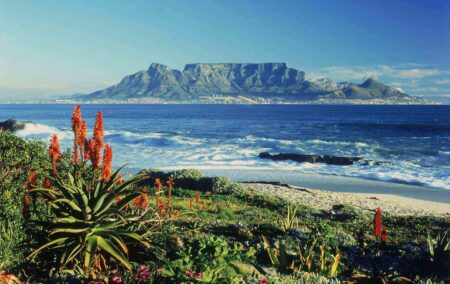It may sound deeply ironic that the African National Congress (ANC), ruling party of South Africa, would benefit from the Western Cape (and possibly the Northern Cape) separating from its country and going independent. But politics is never so simple.
Rather than a severe loss for the ANC, Cape independence may prove beneficial for a party rife with fiscal problems, an identity crisis, and mounting unpopularity. And most of all, it may actually be what the rest of South Africa needs to get back on track.
Success Breeds Success
Cape independence should benefit the people of the Cape. Being free to implement their own laws and policies, spend their own budget, and carve out their own future will help the Cape become prosperous. But this doesn’t have to be an isolated success.
Success can be imitated. As the Cape passes decent legislation, it can be used as a test subject by South Africa for what works and what doesn’t. And if the Cape passes bad laws, then that also would teach South Africa a valuable lesson.
More than that, the economic success of an independent Cape would lead to increased trade with South Africa. With positive, free market policies, the Cape will generate a lot of wealth. And due to proximity, this wealth will filter into South Africa. This will be without the South African government having to spend a cent of taxpayers’ money.
As Singapore has increased the wealth of its region, an independent Cape could increase the wealth of Southern Africa – even more so if it can be a free port with its own laws and policies.
The ANC could reap all the rewards of increased trade with a wealthy Cape without spending a cent. It’s like having a rich relative who has to look after you. And, most importantly, the ANC can generate this wealth by proxy without sacrificing any of its ideological principles.
It can continue to implement its ideas, while the Cape funds South Africa through mutually gainful trade. A win-win!
Securing Support
The primary opposition to the ANC is located in the Western Cape. As the ANC faces an identity crisis and mounting unpopularity, the best thing it could do is to say goodbye to its base of opposition.
By declaring the Cape independent, the official opposition will no longer be located in South Africa. It should already be clear that the ANC will never win the Western Cape. And if they did, it would be by unsustainable means that would lead to even worse results further down the road.
By splitting amicably, the ANC could secure its constituency. Coupled with the extra wealth from Cape trade, this would be just a total win for the ANC.
The ANC Needs Cape Independence
Losing the Cape as a tax base will hurt the South African fiscus, but the benefits of an independent Cape far outweigh the negatives. What the ANC loses in an already drastically shrinking tax base will be replaced by the wealth gained through trade as the Cape generates its own wealth, free of stultifying regulations and policies.
And without the traditional Cape opposition, the ANC loses a huge thorn in its side. It can secure South Africa for itself, learn from good Cape ideas, and benefit from the wealth that independence creates.
All in all, it would be ludicrous for the ANC not to consider creating a free, independent cash cow out of territory it doesn’t really control currently.
The Cape needs independence, and the ANC needs an independent Cape.
The views of the writer are not necessarily the views of the Daily Friend or the IRR
If you like what you have just read, support the Daily Friend

